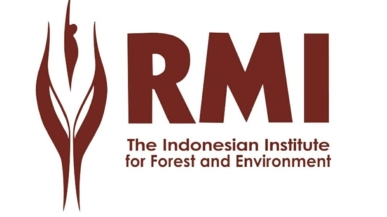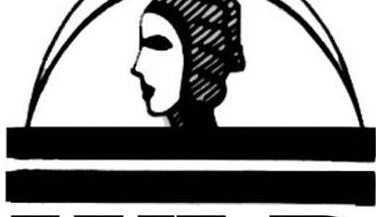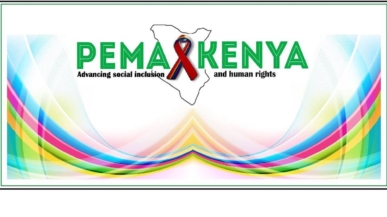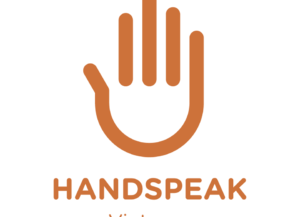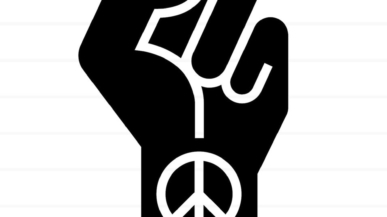Call for proposal
TWINNING IS WINNING! Regional Empowerment Grant -V-19113-XG-EM
-
Grant amount
5,000 - 75,000 EuroProject Duration
12 - 18 MonthsClosing date
01 Aug 2019 -
-
-
Grants
Are you part of an organisation or grassroots initiative ready to break the shackles of social exclusion and discrimination?
Do you see people in neighbouring countries facing the same challenges you experienced in your community to start getting organised and work for social inclusion and respect diversity?
Do you have and/or wish to take to test home-grown strategies that have worked to mobilise your own community in other settings?
If you answered ‘Yes’ to the questions above, then consider applying to this Call for Proposals.
The Voice Empowerment grants are meant for (smaller) organisations to develop transformative leadership, build (collective and individual) confidence and skills, forge alliances with other like-minded organisations in other countries to address shared obstacles, and work collectively against the exclusion of marginalised and discriminated groups. Informal groups can apply by partnering with a registered (lead) organisation.
The Regional Empowerment Grants allow several organisations (or groups) in two or more neighbouring Voice countries to ‘twin’ and embark on a joint learning trajectory to address commonly shared challenges. These grants are available from €5,000 to € 75,000 and for a minimum duration of 12 months and maximum 18 months.
What type of project do we wish to fund?
For Voice, empowerment is a process by which people gain power over their own lives and can take their own decisions. So, for us, an empowerment type of project can focus on:
- Supporting regional networks of civil society organisations to become more resilient, increase their membership, and revitalise their legitimacy towards their national constituencies.
- Organising trainings in developing (basic) leadership, organisational and/or advocacy skills designed to further connect community leaders, advocates, and/or activists from neighbouring countries.
- Taking the initial steps to convene and consolidate cross-border social movements of marginalised groups to push together for inclusion.
- Build new skills to address emerging issues through creative and unexplored gaps in influencing capacities.
- Consolidate the momentum gained from regional exchanges, meetings, and forums to implement what rightsholder group-led organisations have learned.
- Establish solidarity between different rightsholder group-led organisations through collaborative learning processes.
These are just simple examples to trigger your creativity. We invite all applicants to let their imagination lose and to think regionally, while acting locally!
Your project should target any of the following Voice rightsholder groups:
- Age-discriminated vulnerable groups notably the young and elderly.
- Persons with disabilities.
- Indigenous groups and/or ethnic minorities.
- Lesbian, Gay, Bisexual, Transgender, Intersex (LGBTI+) people.
- Women facing exploitation, abuse, and/or violence
Voice has a strong preference for projects that are designed from an intersectional point of view. This means projects will work with more than one of the target groups to address overlapping vulnerabilities and/or forms of discrimination. As examples, young women and girls living with disabilities face triple exclusion at the same time (age, gender, and impairment).
Where do we wish to fund?
Proposals with “out of the box” project ideas that promote cross-country learning and focus on underrepresented groups within the following Voice focus regions:
- East Africa (mainly Kenya, Tanzania, and Uganda)
- West Africa (mainly Nigeria, Niger and Mali)
- Southeast Asia (mainly Cambodia, Laos, Philippines, and Indonesia)
Finally, your project can look at any or all of the following impact themes:
- Improved access to (productive) resources (finance, land, and water) and employment,
- Improved access to social services, health, and education in particular, and
- Space for political participation and citizen engagement.
Still in need of more inspiration or ideas?
We invite you to take a look at the different Empowerment project supported by Voice via our Grantee page.
For more information Voice strategic and programmatic priorities, we highly recommend you to make use of our Global (and Country-specific) Context Analyses and our Annual Report 2018.
Who do we wish to fund?
The (lead) applicant must be rightsholder group-led. What does this mean? An organisation (formal/informal) is rightsholder group-led when it is governed and managed by members of the target-group(s). The principle of “Nothing About Us Without Us” guides their work. If the rightsholder group(s) do not play roles in the governance and management of the organisation, the proposal needs to describe how the groups are fully involved in the conceptualisation, implementation, monitoring, and evaluation of the project.
Additionally, the (lead) applicant must be registered in at least one of the countries in the region where their project will be implemented with an operational local bank account in the applicant’s name. For example: For a project in West Africa, the (lead) applicant needs to be registered in either Niger, Mali, Nigeria or another neighbouring country in West Africa.
The only exception is if the grant cannot be led by an organisation based in the countries due to the nature of the proposed project presenting additional security or safety risks. In this case, Voice allows an application led by a target group-led organisation in a third country (preferably in a neighbouring country in the region where the project will be implemented). Obviously, the majority of the activities still need to be implemented in close collaboration with local groups in the Voice focus countries, taking security and safety into account.
What we won’t fund:
- Projects involving activities involving only one country or no Voice-focus country at all.
- Projects across Voice regions. For example, a project proposed by a (lead) organisation based in South East Asia to be implemented in East Africa.
- Funding of commercial services, investment or other commercial activities.
- Networks, coalitions or consortia led by applicants with an annual turnover of over €2 million and without a presence in any of the Voice 10 focus countries in Africa or Asia.
- Project proposals led by international civil society organisations (INGOs). These can only be as co-applicants and technical advisors for Voice-funded projects, and allow their partners working at the local level to develop their own capacities. In case international civil society organisations are interested in applying, they must allow their local partners (in a consortium) to take the lead in the design, management, implementation and evaluation of the project.
Final remarks…
Existing empowerment grantees can only apply with a project that will start after their current Voice-funded project ends. Voice encourages graduation, but can only have one contract at a time with a (lead) organisation.
All Voice-funded projects need to be fully finished before the end of December 2020. Therefore, applicants considering applying cannot include activities beyond this deadline.
From the numerous applications received the following grantees have been successful as part of this Call for Proposals. If you like to join Voice please see the current list of open Calls for Proposals
-
About
Are you part of an organisation or grassroots initiative ready to break the shackles of social exclusion and discrimination?
Do you see people in neighbouring countries facing the same challenges you experienced in your community to start getting organised and work for social inclusion and respect diversity?
Do you have and/or wish to take to test home-grown strategies that have worked to mobilise your own community in other settings?
If you answered ‘Yes’ to the questions above, then consider applying to this Call for Proposals.
The Voice Empowerment grants are meant for (smaller) organisations to develop transformative leadership, build (collective and individual) confidence and skills, forge alliances with other like-minded organisations in other countries to address shared obstacles, and work collectively against the exclusion of marginalised and discriminated groups. Informal groups can apply by partnering with a registered (lead) organisation.
The Regional Empowerment Grants allow several organisations (or groups) in two or more neighbouring Voice countries to ‘twin’ and embark on a joint learning trajectory to address commonly shared challenges. These grants are available from €5,000 to € 75,000 and for a minimum duration of 12 months and maximum 18 months.
What type of project do we wish to fund?
For Voice, empowerment is a process by which people gain power over their own lives and can take their own decisions. So, for us, an empowerment type of project can focus on:
- Supporting regional networks of civil society organisations to become more resilient, increase their membership, and revitalise their legitimacy towards their national constituencies.
- Organising trainings in developing (basic) leadership, organisational and/or advocacy skills designed to further connect community leaders, advocates, and/or activists from neighbouring countries.
- Taking the initial steps to convene and consolidate cross-border social movements of marginalised groups to push together for inclusion.
- Build new skills to address emerging issues through creative and unexplored gaps in influencing capacities.
- Consolidate the momentum gained from regional exchanges, meetings, and forums to implement what rightsholder group-led organisations have learned.
- Establish solidarity between different rightsholder group-led organisations through collaborative learning processes.
These are just simple examples to trigger your creativity. We invite all applicants to let their imagination lose and to think regionally, while acting locally!
Your project should target any of the following Voice rightsholder groups:
- Age-discriminated vulnerable groups notably the young and elderly.
- Persons with disabilities.
- Indigenous groups and/or ethnic minorities.
- Lesbian, Gay, Bisexual, Transgender, Intersex (LGBTI+) people.
- Women facing exploitation, abuse, and/or violence
Voice has a strong preference for projects that are designed from an intersectional point of view. This means projects will work with more than one of the target groups to address overlapping vulnerabilities and/or forms of discrimination. As examples, young women and girls living with disabilities face triple exclusion at the same time (age, gender, and impairment).
Where do we wish to fund?
Proposals with “out of the box” project ideas that promote cross-country learning and focus on underrepresented groups within the following Voice focus regions:
- East Africa (mainly Kenya, Tanzania, and Uganda)
- West Africa (mainly Nigeria, Niger and Mali)
- Southeast Asia (mainly Cambodia, Laos, Philippines, and Indonesia)
Finally, your project can look at any or all of the following impact themes:
- Improved access to (productive) resources (finance, land, and water) and employment,
- Improved access to social services, health, and education in particular, and
- Space for political participation and citizen engagement.
Still in need of more inspiration or ideas?
We invite you to take a look at the different Empowerment project supported by Voice via our Grantee page.
For more information Voice strategic and programmatic priorities, we highly recommend you to make use of our Global (and Country-specific) Context Analyses and our Annual Report 2018.
Who do we wish to fund?
The (lead) applicant must be rightsholder group-led. What does this mean? An organisation (formal/informal) is rightsholder group-led when it is governed and managed by members of the target-group(s). The principle of “Nothing About Us Without Us” guides their work. If the rightsholder group(s) do not play roles in the governance and management of the organisation, the proposal needs to describe how the groups are fully involved in the conceptualisation, implementation, monitoring, and evaluation of the project.
Additionally, the (lead) applicant must be registered in at least one of the countries in the region where their project will be implemented with an operational local bank account in the applicant’s name. For example: For a project in West Africa, the (lead) applicant needs to be registered in either Niger, Mali, Nigeria or another neighbouring country in West Africa.
The only exception is if the grant cannot be led by an organisation based in the countries due to the nature of the proposed project presenting additional security or safety risks. In this case, Voice allows an application led by a target group-led organisation in a third country (preferably in a neighbouring country in the region where the project will be implemented). Obviously, the majority of the activities still need to be implemented in close collaboration with local groups in the Voice focus countries, taking security and safety into account.
What we won’t fund:
- Projects involving activities involving only one country or no Voice-focus country at all.
- Projects across Voice regions. For example, a project proposed by a (lead) organisation based in South East Asia to be implemented in East Africa.
- Funding of commercial services, investment or other commercial activities.
- Networks, coalitions or consortia led by applicants with an annual turnover of over €2 million and without a presence in any of the Voice 10 focus countries in Africa or Asia.
- Project proposals led by international civil society organisations (INGOs). These can only be as co-applicants and technical advisors for Voice-funded projects, and allow their partners working at the local level to develop their own capacities. In case international civil society organisations are interested in applying, they must allow their local partners (in a consortium) to take the lead in the design, management, implementation and evaluation of the project.
Final remarks…
Existing empowerment grantees can only apply with a project that will start after their current Voice-funded project ends. Voice encourages graduation, but can only have one contract at a time with a (lead) organisation.
All Voice-funded projects need to be fully finished before the end of December 2020. Therefore, applicants considering applying cannot include activities beyond this deadline.
-
How to apply?
This Call for Proposals is closed and no longer accepting applications. Come back here at a later stage to learn about the grantees that have been selected in this Call for Proposals.
The current open Calls for Proposals can be found here.
-
This Call for Proposals is closed and no longer accepting applications. Come back here at a later stage to learn about the grantees that have been selected in this Call for Proposals.
The current open Calls for Proposals can be found here.
-
From the numerous applications received the following grantees have been successful as part of this Call for Proposals. If you like to join Voice please see the current list of open Calls for Proposals


